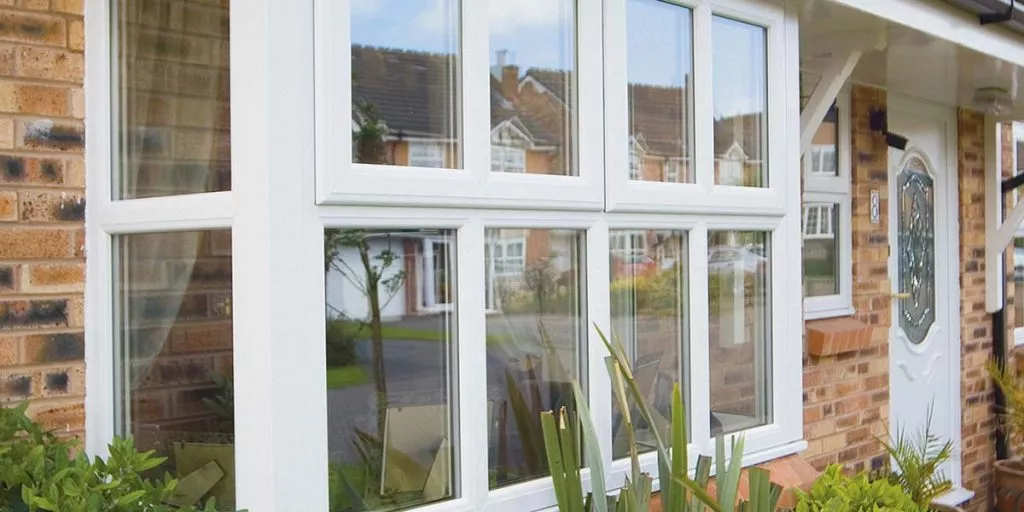Let us unravel the contrasts and shared benefits of double glazing and triple glazing to help you be more informed about what they each offer and learn which of them you should be buying. Everything you need to know is here if you want decisive insight on the two solutions.

Understanding Double Glazing and Triple Glazing
Window glazing is the glass area of a double or triple glazed window that plays such an important role in home insulation and energy efficiency, with double-paned windows being the most commonly used designs in the UK’s housing stock.
Increased insulation and thermal efficiency arises the more layers of glass a window has, triple glazed windows u value being outstandingly low, but it drives up the cost, worth pointing out if your budget is tight.
Light transmittance and the physical barrier provided by window glazing are separate essential functions, bedrocks for illuminating interiors with visible light and intercepting trespass to keep you safe.
Triple Glazing vs Double Glazing – Key Differences
Aside from the price difference between double and triple glazing, an obvious dissimilarity is that a double glazed unit accommodates two panes of glass, whereas a triple glazed unit houses three of them and subsequently has an extra air gap filled with an argon gas. But the distinction extends further than just that.
Structurally, a triple glazed unit has a greater depth, around 36mm, with a double glazed unit roughly measuring a standard width of 28mm, and triple glazed windows are weightier, so existing framework may need reinforcement to hold their added weight.
Clearview harnesses use of UPVC and aluminium to craft its plethora of window styles and almost all of them can be supplied in double or triple glazed form.
The Benefits of Double and Triple Glazing
Global acceleration of the price of energy has activated a huge rise of uptake in double glazing and triple glazing windows as householders look to conserve greater volumes of energy at home and keep bills down.
Upgrading to either solution from old single glazed windows can make a vast difference to overall comfort if you feel the cold indoors during the winter months, with both excellent at harvesting the sun’s energy and stopping its escape through replacement windows.
Triple glazing is the more insulating of the two if you’re wanting a honest opinion on double glazing vs triple glazing (you get nothing else but honesty at Clearview!) but double glazing Lancashire has first-rate thermal properties and shouldn’t be dismissed.
If you get disturbed by noise and want a quiet living atmosphere, double and triple glazing can potentially reduce sound levels, to a greater degree when they include specialist acoustic glass.
Triple Glazing Advantages
Triple glazed windows u value is impressively low (approx. 0.8 W/m2K) when you consider that building regulations stipulate a minimum u-value of 1.4 W/m2K and it has been a catalyst in its rising popularity, fuelling much conversation about triple glazing vs double glazing. Triple glazing is also able to accomplish an A++ energy efficiency rating.
A recurring discussion point about triple glazing is its noise reduction qualities and whether or not these are exaggerated.
It’s true that triple glazed windows can lessen the audibility of traffic noise, but noise reducing glass is only achievable if the glass panes and cavities are different thicknesses, or else it has little effectiveness.
Prompting an improvement in your home’s EPC (Energy Performance Certificate) rating, which may occur as a result of having triple glazing installed, is known to boost the appeal and valuation of properties.
Double Glazing Advantages
There is quite a list of advantages to upgrading to double glazing, beginning with how it will improve thermal efficiency, taking the pressure off your heating system to fuel your house with warmth by restricting draughts, preserving heat, and funnelling it in via the sun.
Amplified security is another as quality double glazed windows include advanced locking mechanisms, high-security hinges etc., and are internally glazed, preventing the removal of glass from outside.
Think of how much nicer the property will look too and the simplified maintenance there is involved in prolonging the natural elegance of the frames and glass compared to traditional wooden windows.
Can You Use Existing Double Glazing Frames?
Householders who currently have double glazed windows and in hindsight wish they had triple glazed windows may be wondering, can you put triple glazing in double glazing frames?
That is a possibility, however it depends on a number of factors, the first of them being whether your current window frames can take the extra weight of triple glazed window units. And triple glazing isn’t just heavier than double glazing, it’s thicker too.
Narrower frames or frames that don’t have the robustness to house triple glazed units will need a total replacement. You could end up with problems like condensation if it is placed into unsuitable frames.
If checks decree that your current frames are suitably sized and have the structural integrity to support triple glazing, they can be retrofitted and you can reap the benefits of improved insulation.
Making the Right Choice for Your Home
We can’t deny that selecting between double and triple glazing isn’t a straightforward choice, but if you know the facts behind the two competing solutions and what they offer, it removes any clouded thinking.
Triple glazing first took off in Scandinavia, where citizens experience viciously cold winters and need top-level insulation at home to stay warm and reduce heat loss. There are areas of this country that justify its inclusion to bat off freezing conditions, so the location of your residence may resolve the triple vs double glazing debate for you.
Cost will, of course, come into the picture too and there’s a higher outlay for triple glazed windows, but the price difference in most instances is marginal. You can also recoup some of the cash spent on either through long term savings made on energy bills.
Any replacement windows bought must exhibit a design that’s consistent with your home’s architectural style. Thankfully, double and triple glazing is a buying option for most window types, whether it’s a contemporary look and feel you need or a traditional touch.
Clear any uncertainty in your mind about these two possibilities by chatting to a Clearview consultant over the phone or in a showroom.
